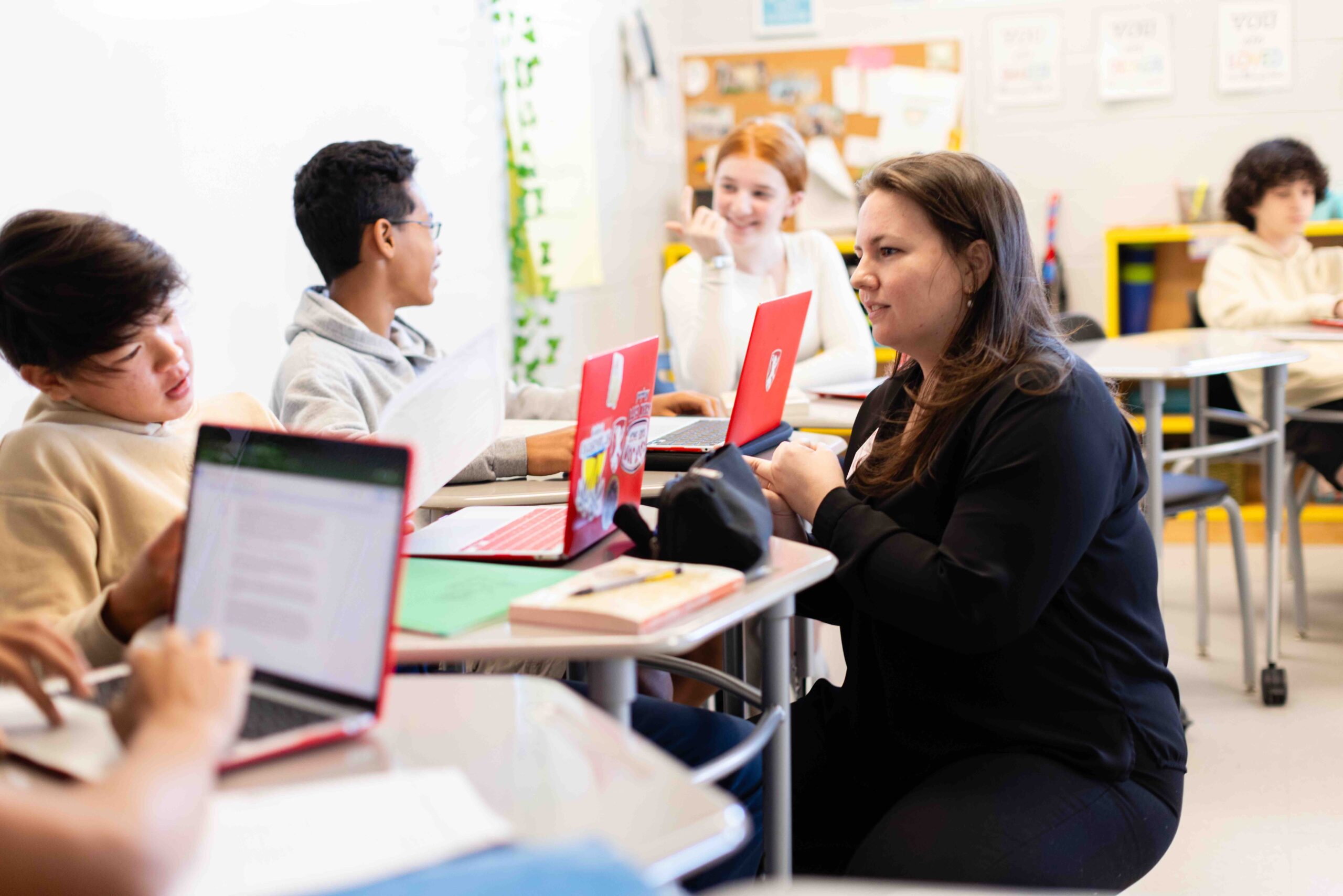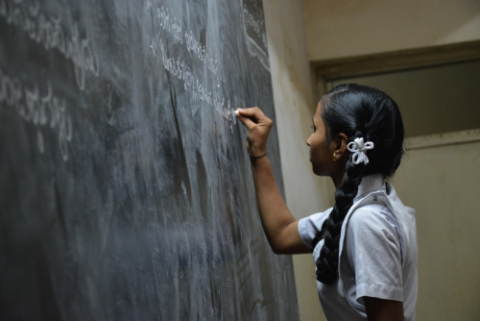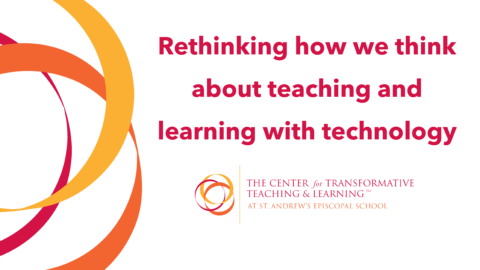Sara McAuliffe is a passionate educator who is dedicated to fostering meaningful learning experiences. She is currently an English teacher and interim Dean of Students at St. Andrew’s Episcopal School (MD). Delve into her inspiring story of growth, empowerment, and the pursuit of excellence in education, and how her experience attending the CTTL’s Science of Teaching and School Leadership Academy last July enhanced her teaching approach.
Finding Joy in the “Aha” Moments
As educators, we all cherish those “aha” moments when a student’s brain finally grasps a concept. These instances reaffirm our purpose and ignite a sense of pride in both student and teacher. Sara, a passionate and innovative teacher, captures this sentiment when she says, “Seeing a student’s brain actually get it… it’s just that joy that they have. And that sense of pride that they have in themselves. And then, you as a teacher, you’re part of facilitating that moment of learning.” It is this desire to facilitate growth that led Sara to embark on her transformative journey at the Academy.
Putting Strategies into Practice
When asked why she attended the Academy last summer, Sara emphasized the value of professional development and continuous learning, stating, “To become a better teacher and facilitate learning in different ways, the Academy was an opportunity I couldn’t miss.” Through the Academy’s series of deep-dives into research-based strategies, educators like Sara are equipped with the language and tools necessary to integrate Mind, Brain, and Education (MBE) principles into their classrooms effectively. With a renewed focus on student choice and voice, her teaching philosophy has evolved to create a more engaging and student-centered learning environment.
Sara eagerly shared the strategies she has implemented since attending the Academy. She highlighted the use of interleaving and retrieval—circling back to reinforce concepts to ensure every student grasps them—in grammar lessons. Moreover, she implements formative assessment and targeted feedback instead of overwhelming amounts of generic feedback, making her instructions more personalized and impactful. By integrating real-life connections into the curriculum, Sara helps students recognize the value of their learning, fostering a sense of relevance and investment.
Building Student Relationships and Encouraging Student Identities
Before attending the Academy, Sara had a chance to attend the CTTL’s Winter Webinar Series. “The Winter Webinar Series was one of the first opportunities I had to actually do professional development that was solely focused on diversity, equity and belonging,” she recalled. “It allowed me to make the connections between who the students are and how they learn.” Recognizing the profound impact of student-teacher relationships, Sara encourages educators to invest time in building connections with their students. “Taking the time to build relationships and show that you care about them has an immense impact on student learning,” she affirmed. To strengthen these relationships, Sara incorporates activities such as frequent check-ins and reflection exercises, ensuring that her students feel seen, valued, and heard within the classroom.
Additionally, Sara acknowledges the critical role that student identity plays in the learning process. For a student to reach their full potential, they must feel like a valued member of the community. Sara believes that embracing student identities within the curriculum is instrumental in creating a supportive and inclusive learning environment. By fostering empathy, her English classroom serves as a safe space where students can explore their thoughts, navigate complex topics, and grow personally and academically. “I have always been a fan of discussion-based classrooms,” she continued. “Demonstrating to students that we have rigorous standards and high expectations for these discussion-based lessons, allows them to rise to the occasion and really thrive. This teaching philosophy has been supported and nurtured in the Academy and the winter webinars which lets me know that this is accurate, this is right, and this is a good way to teach English.”
Transforming Pedagogy, Enriching Lives
For educators who are already well-versed in implementing MBE strategies, the Academy still holds immense value. Sara, despite having prior MBE training, saw the Academy as a welcome refresher and an opportunity to stay updated with the latest neuroscience research. As she aptly puts it, “We’re constantly learning more about the brain and how our students use their brains. Anytime we can stop to pause and absorb the research that’s out there, it is going to make us better teachers.”
Sara’s story illustrates the power of the Academy in helping educators transform their teaching approach. By embracing the principles of MBE, teachers like Sara are better equipped to navigate cognitive load, design meaningful homework, and cultivate the joy of learning in their students. Through seminars, research, and collaborative learning, the Academy empowers teachers to create engaging classrooms that nurture individual growth, promote student choice, and celebrate diverse identities.
As the Academy continues to propel the field of education forward, it reminds us that our collective pursuit of excellence is essential in shaping the future of teaching and learning. For educators dedicated to enhancing their classroom strategies, the Academy remains a beacon of inspiration and knowledge, guiding educators to new horizons of educational excellence.




